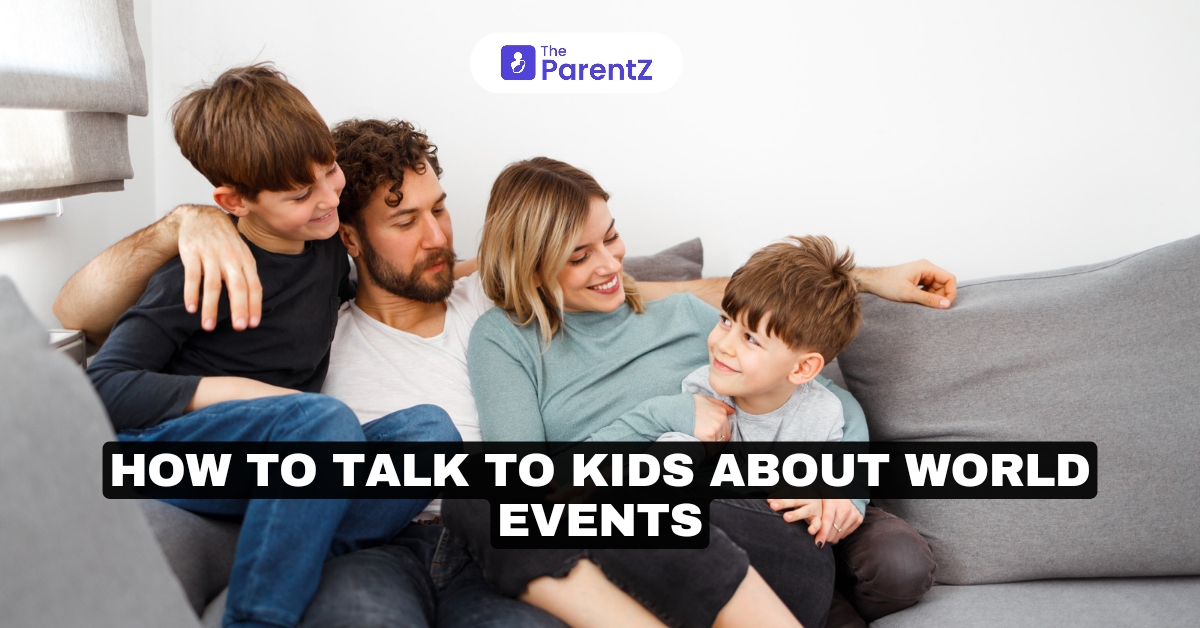In a world saturated with news and media, discussing world events with children can be a daunting task for parents. The key lies in balancing the need to inform with the need to protect their emotional well-being. This article explores effective strategies to communicate world events to children, ensuring they understand without feeling overwhelmed.
Understanding the Child's Perspective
Children perceive the world differently than adults. Their cognitive and emotional development stages significantly influence how they process information. For younger children, the world is often seen through a lens of simplicity and security. Introducing complex and potentially frightening topics, such as wars or natural disasters, requires careful consideration. Psychologist Jean Piaget's theory of cognitive development emphasizes that children aged 7 to 11 (concrete operational stage) begin to think logically about concrete events but may struggle with abstract concepts like politics or global conflicts. Understanding this developmental stage is crucial for parents to gauge how much information to share.
Age-Appropriate Conversations
Tailoring the conversation to the child's age is essential. For younger children (ages 4-7), focus on the basics without delving into details that could cause unnecessary fear. For example, if discussing natural disasters, emphasize the role of emergency services and the measures taken to ensure everyone's safety. Middle school children (ages 8-12) can handle more detailed discussions but should be reassured about their safety and the efforts being made to resolve the situation.
Adolescents, however, are capable of engaging in more complex discussions. At this stage, it's vital to encourage critical thinking, allowing them to form their own opinions based on facts. Research by Dr. Ellen Wartella, a professor of communication, underscores the importance of media literacy in helping adolescents navigate the overwhelming flow of information. Parents should guide their teens in analyzing the credibility of sources and understanding the context behind world events.
The Role of Emotional Intelligence
Emotional intelligence plays a significant role in how children react to world events. Teaching children to identify and express their emotions can help them process information more effectively. Dr. Daniel Goleman's work on emotional intelligence highlights the importance of empathy, self-awareness, and emotional regulation in managing stress and anxiety. Parents should encourage children to talk about their feelings, validating their emotions and providing reassurance.
For instance, if a child expresses fear after hearing about a terrorist attack, a parent might acknowledge the fear and then shift the focus to the security measures in place to protect people. This approach not only addresses the child's emotions but also helps them feel safer and more secure.
Utilizing Educational Resources
Books, documentaries, and educational websites can be valuable tools in explaining world events to children. Resources like "A Kid's Guide to Understanding the News" by Child Mind Institute provide age-appropriate explanations for various global issues. Additionally, platforms like Common Sense Media offer guidance on selecting media that aligns with a child's developmental stage.
Parents can also incorporate stories from history that mirror current events, helping children draw parallels and understand that the world has always faced challenges, but humanity has consistently found ways to overcome them. This historical perspective can offer a sense of continuity and hope.
Encouraging Open Dialogue
Creating an environment where children feel comfortable asking questions is crucial. Open dialogue fosters trust and ensures that children turn to their parents for information rather than unreliable sources. Parents should listen actively, provide honest answers, and be willing to say, "I don't know," when appropriate. It's also important to revisit discussions as events unfold, providing updates and addressing any new concerns.
For example, during the COVID-19 pandemic, many parents found themselves in ongoing conversations with their children about the virus, safety measures, and the impact on daily life. These discussions evolved as the situation changed, helping children adapt to new realities.
Conclusion
Talking to children about world events is a complex but essential task. By understanding their developmental stages, utilizing educational resources, and fostering emotional intelligence, parents can help their children navigate the complexities of the world with confidence and resilience. It's not about shielding them from reality but equipping them with the tools to understand and cope with it effectively.





Be the first one to comment on this story.